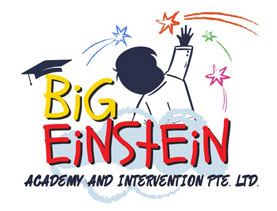Early intervention in special education plays a crucial role in supporting children with developmental delays, disabilities, or learning differences. By identifying and addressing challenges early, children can build essential skills that set the foundation for lifelong success. Whether it’s speech therapy, behavioural support, or individualized learning plans, early intervention significantly improves outcomes for children and their families.
Let’s explore:
- What early intervention is and why it matters
- Key benefits of early intervention
- Effective strategies for early support
What is Early Intervention in Special Education?
Early intervention refers to a range of services designed to help children from birth to age five who show signs of developmental delays or disabilities. These services are tailored to address areas such as:
- Cognitive development (thinking and problem-solving skills)
- Communication skills (speech, language, and social interaction)
- Motor skills (movement, coordination, and strength)
- Emotional and behavioural development (self-regulation, social skills)
Early intervention programs are typically delivered through special education services, speech therapy, occupational therapy, physical therapy, and behavioural support. These interventions help children develop the foundational skills needed for academic and social success.
Why Early Intervention Matters
1. Enhances Brain Development
A child’s brain is most adaptable during the early years. Research shows that early intervention can create new neural connections, improving learning and adaptability. The earlier support begins, the greater the impact on cognitive and emotional growth.
2. Improves Communication and Social Skills
Many children with special needs, such as autism or speech delays, struggle with communication. Early speech therapy and social skills training can help children express themselves, understand others, and build meaningful relationships.
3. Prepares Children for School Success
Children who receive early intervention are more likely to succeed academically. They develop essential pre-literacy skills, attention control, and the ability to follow instructions, making the transition to school smoother.
4. Reduces the Need for Intensive Support Later
Addressing developmental challenges early can prevent them from becoming more severe. Children who receive early intervention often require fewer special education services later in life, leading to greater independence and self-confidence.
5. Supports Families and Caregivers
Early intervention provides families with education, resources, and emotional support. Parents learn how to engage with their child’s unique learning style, reducing frustration and fostering a positive home environment.
Key Strategies for Effective Early Intervention
1. Early Identification and Assessment
- Parents, caregivers, and educators should watch for developmental milestones and seek professional assessments if concerns arise.
- Pediatricians, speech therapists, and psychologists can help diagnose and recommend appropriate interventions.
2. Individualized Support Plans (IEPs and IFSPs)
- Individualized Family Service Plans (IFSPs) are designed for children under three and focus on developmental goals at home.
- Individualized Education Programs (IEPs) support children in preschool and beyond, ensuring they receive the right accommodations in school.
3. Speech and Language Therapy
- Helps children develop verbal and nonverbal communication skills.
- Encourages alternative communication methods such as sign language or picture exchange systems.
4. Occupational and Physical Therapy
- Supports children with fine and gross motor delays.
- Helps with daily tasks like holding a pencil, buttoning clothes, or walking with coordination.
5. Social and Emotional Development
- Encourages structured play, group activities, and emotion regulation exercises.
- Helps children develop friendships, share, and express their feelings appropriately.
6. Parent and Caregiver Involvement
- Parents should actively participate in therapy sessions and practice techniques at home.
- Support groups and workshops help caregivers stay informed and connected.
Early intervention in special education provides children with the skills, confidence, and support they need to thrive. By identifying challenges early and using targeted strategies, we can empower children to reach their full potential. Whether you’re a parent, educator, or caregiver, advocating for early intervention can make a life-changing difference.




